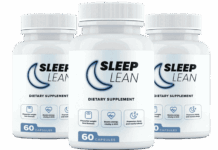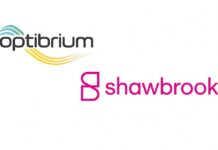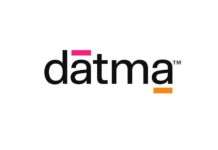According to a recent survey from the Pistoia Alliance, AI and machine learning- ML are going to be the top technology investments when it comes to 60% of life sciences companies in the next two years. 1
With this growing focus when it comes to ML, it is indeed high time that we discuss the status, challenges, as well as the use cases of AI and ML in the pharma industry.
Henry Levy, who happens to be a leading life sciences expert, has gone on to publish various articles when it comes to drug development as well as technology trends.
The usage of AI & ML with pharma as the backdrop
As per Levy, AI and ML happen to be in most technologies and also in most pharmaceutical companies.
From the outset, Levy is indeed sure to distinguish when it comes to conventional artificial intelligence and machine learning, both of which have been for almost 7 to 10 years, and generative AI. Due to the emergence of ChatGPT, GenAI has quickly gained immense prominence over the last year and is indeed being acknowledged for its potential to speed up and elevate drug discovery.
It is well to be noted that generative AI goes on to change the dynamic in two ways: by speeding up the level of automation as much as possible and elevating the potential when it comes to innovation.
When it comes to the regulatory space, Levy goes on to opine that AI and ML are already made use of in order to pre-populate submissions to the authorities, for instance, by way of pre-filling set fields. It is well to be noted that GenAI can take this to yet another level with the capacity to generate almost 95% of that content. By way of having a proper oversight, GenAI has got the potential to push for efficiencies and, at the same time, slash the time that is required for a regulatory submission, says Levy.
Apparently, there also happens to be scope when it comes to innovating new drugs; however, that is further off, as per Levy.
He thinks in the next 5 to 10 years, the intelligence level is going to get to a point where GenAI can, in reality, go on to contribute to actual innovation when it comes to the development of drugs. According to him, even though there are a lot of companies that are trying to apply AI or GenAI, to potentially designing as well as adjusting molecules, he does not think GenAI does the work, but it can help speed it up.
Overcoming the major AI issues: regulation, cost, and beyond
Interestingly, regulatory acceptance happens to be a major challenge when it comes to the execution of AI in the pharmaceutical backdrop. Regulators happen to be working on defining regulations as well as guidelines for the usage of AI, while at the same time also discovering AI applications internally. From a regulatory point of view, Levy says that no authorities have gone on to answer fundamental questions that happen to be related to the submission of a filing that has AI; for instance, what type of testing is required to be done or what kind of evidence is needed to be in the filing.
Another barrier to AI happens to be, unsurprisingly, the cost.
Levy notes that GenAI sounds great, but if one is looking to have something that goes on to work in this specific space, the expenditures today are high; however, as with any technology, these barriers of cost should fade away with time.
Hallucinations, which happen to be the generation of outputs that would sound plausible but happen to be either factually incorrect or unrelated to the given context, happens to be another factor to take into account. But Levy believes that this has more to do with fear than the actual reality for the pharma sector.
When it comes to the pharma industry, the way that one is going to be doing things, those hallucinations have to be prominently decreased, Levy opines.
He adds that nobody in the pharma sector happens to be saying that they would want to make use of AI independent of humans. They are indeed not going to take the outcome when it comes to an AI algorithm and put that into a patient.
Therefore, he feels that it is indeed more fear than reality. However, there are some realities in terms of hallucinations, and one ought to deal with them.
Use cases for GenAI when it comes to pharma
Although there can as well be infinite applications when it comes to AI in pharma, the most significant ones happen to be in research as well as discovery space, where the numbers are all about getting rid of numerous options down to just 5 to 10, which one would actually like to put into a human, remarks Levy.
If one can take that process and go on to significantly shorten it by way of predicting as well as designing a molecule that happens to have a higher percentage of success, it would indeed be transformational.
But Levy stresses that the outcome is not going to be known until probably four to six years from now.
It is well to be noted that GenAI can very well aid in the design of more efficient clinical trials and also in identifying patients by way of looking at real-world data. Apparently, patient recruitment happens to be the hardest part of the entire process, so if one can go on to accelerate that, it is going to be amazing, Levy says.
As one looks at the focus areas for AI, Levy thinks the next three to five years are going to be about efficiency and a bit of speed too. He thinks that almost 5 to 10 years from now, it may as well have the potential to be innovative, and once one gets there, it is going to be wow!
Application of AI
There happen to be many activities that are done that are indeed not generative in nature. Conventional AI and ML, the basis of the activity, can be used when it comes to automation.
Levy cites the example of clinical data management wherein the physicians enter data about a clinical trial. In such cases, AI can be made use of to identify mistakes as well as discrepancies in data and also go on to notify the physician. By using AI and ML to come up with some simple algorithms, one can go on to help in automating the process so as to connect clinical trial data.
Looking at what lies ahead
Levy stresses that for the very first time and that too for a long time, the pharma industry is going ahead and taking adoption of an IT innovation very seriously, and the fact is that he does not think they are that far. Having said that, it is a big industry, and there are laggards as well as leaders.
It is well to be noted that all the pharma companies that Levy happens to be working with are investing majorly in AI and, at the same time, pushing their organizations as well as partners to be as aggressive as they can be. Apparently, one sector that has not been as much advanced is perhaps biotech.
Levy calls all his views optimistic and says that he would like to repeat the fact that AI is in to way a replacement for humans, for scientists, or even for science.
According to him, the human body has not been able to be mapped at the level that one knows exactly what it is going to be doing, and hence he does not think that GenAI is going to cure cancer. But it might as well speed up some cures in certain areas of cancer, as the human body will go on to evolve and, at the same time, will adjust.
Lecy says that he is indeed excited and thinks that the industry is excited too, and one must be very serious about AI. However, the fact is that science is still going to be immensely necessary and valuable, and that scientists are going to get credited.
References
A global survey compiled in partnership with lab of the future congress. [Internet]. Pistoia Alliance. 2023. [cited 2024Jan]. Available from: https://www.pistoiaalliance.org/lab-of-the-future-report-2023/


















